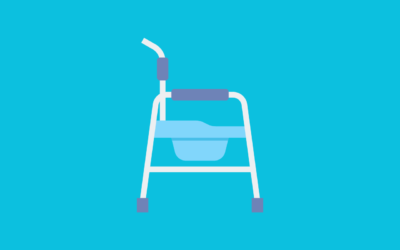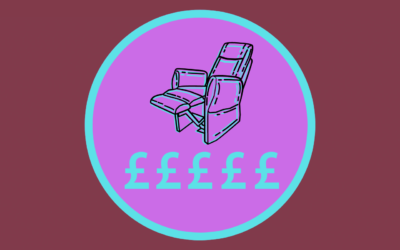Key Takeaways For Rollators
What is a Rollator? Mobility device with wheels, handles, and a seat for those with difficulty walking or balance issues. Features a foldable frame for easy transport and storage.
Who Benefits from Rollators? Seniors with balance issues, individuals with arthritis or mobility challenges. It is ideal for those with chronic pain and limited stamina, as well as caregivers assisting individuals with walking support.
Choosing and Using Rollators: Types include three-wheeled for manoeuvrability, four-wheeled for stability, and heavy-duty for larger individuals. Safety tips: Adjust handles, wear proper footwear, maintain good posture, and use brakes when needed.
Top Rollators
Rollators are mobility aids designed to support and assist individuals with limited mobility. This article answers common questions about rollators, whether you’re considering using one or looking for information about it.
What Is a Rollator?
A rollator is a mobility device that combines a stable frame with wheels, handles, and a seat. It’s designed to assist individuals who have difficulty walking or maintaining balance. Rollators typically have a foldable frame, making them easy to transport and store.
Who Can Benefit from Using a Rollator?
Rollators are beneficial for a wide range of individuals, including:
- Seniors: Rollators provide support and stability for seniors with balance issues.
- People with Mobility Challenges: Rollators are helpful for people with conditions like arthritis, multiple sclerosis, or recovering from surgery.
- Individuals with Chronic Pain: Rollators offer a way to reduce the strain on joints and muscles when walking.
- People with Limited Stamina: A rollator can provide a convenient resting place if you quickly tire while walking.
- Caregivers: Caregivers can use rollators to assist individuals who need walking support.
What Are the Types of Rollators?
Rollators come in various types to cater to different needs and preferences:
- Three-Wheeled Rollators: These have a triangular design with one wheel in the front and two in the back. They are lightweight and manoeuvrable, making them suitable for tight spaces.
- Four-Wheeled Rollators: Four-wheeled rollators offer stability and balance. They are ideal for outdoor use and typically have a seat and storage pouch.
- Heavy-Duty Rollators: Designed for larger individuals, heavy-duty rollators have a higher weight capacity and provide enhanced stability.
- Rollator Walkers with Seats: Rollators with built-in seats and backrests provide a convenient place to rest when needed.
How Do I Use a Rollator Safely?
Using a rollator safely involves several key steps:
- Adjust the Handles: Ensure the handles are comfortable to avoid strain on your back or shoulders.
- Wear Appropriate Footwear: Choose shoes with good traction to prevent slipping.
- Practise Proper Posture: Stand up straight while using the rollator to maintain balance and reduce the risk of falls.
- Brake Usage: Familiarise yourself with the rollator’s brakes and use them when needed, especially when sitting down or getting up.
- Observe Your Surroundings: Attention to your environment to avoid obstacles, uneven surfaces, or slippery areas.
- Regular Maintenance: Keep your rollator in good condition by checking for loose screws, maintaining the wheels, and lubricating moving parts.
Can Rollators Be Used Outdoors?
Yes, rollators are designed for both indoor and outdoor use. Four-wheeled rollators with larger wheels are particularly suitable for outdoor terrain, as they provide stability and ease of movement over uneven surfaces.
Does Insurance cover Rollators?
In many cases, rollators are eligible for coverage by insurance plans, including Medicare and Medicaid, when prescribed by a healthcare provider. However, coverage may vary, so you must check with your insurance provider and healthcare professional for specific details.
How Do I Choose the Right Rollator?
Choosing the right rollator involves considering your specific needs. Factors to consider include:
- Type: Select a rollator type that suits your mobility requirements.
- Height Adjustability: Ensure the handles can be adjusted to your height.
- Weight Capacity: Choose a rollator with a weight capacity that accommodates your weight.
- Additional Features: Consider features like a seat, storage pouch, and accessories based on your preferences.
Rollators provide valuable support and mobility assistance for individuals with various needs. Consult a healthcare professional or mobility specialist to determine the most suitable rollator for your requirements.
Top Rollators
Related Rollator Guides and FAQ Articles
- Rollator Buying Guide – Comprehensive guide to selecting the best rollator for your mobility needs.
- Best Rollators – Discover top-rated rollators designed for stability and comfort.
- Rollator or Tri Walker: Which Could Be Best for Your Mobility? – Compare rollators and tri walkers to find the ideal option.
- Best Walking Frames – Explore walking frames that provide reliable support and ease of movement.












